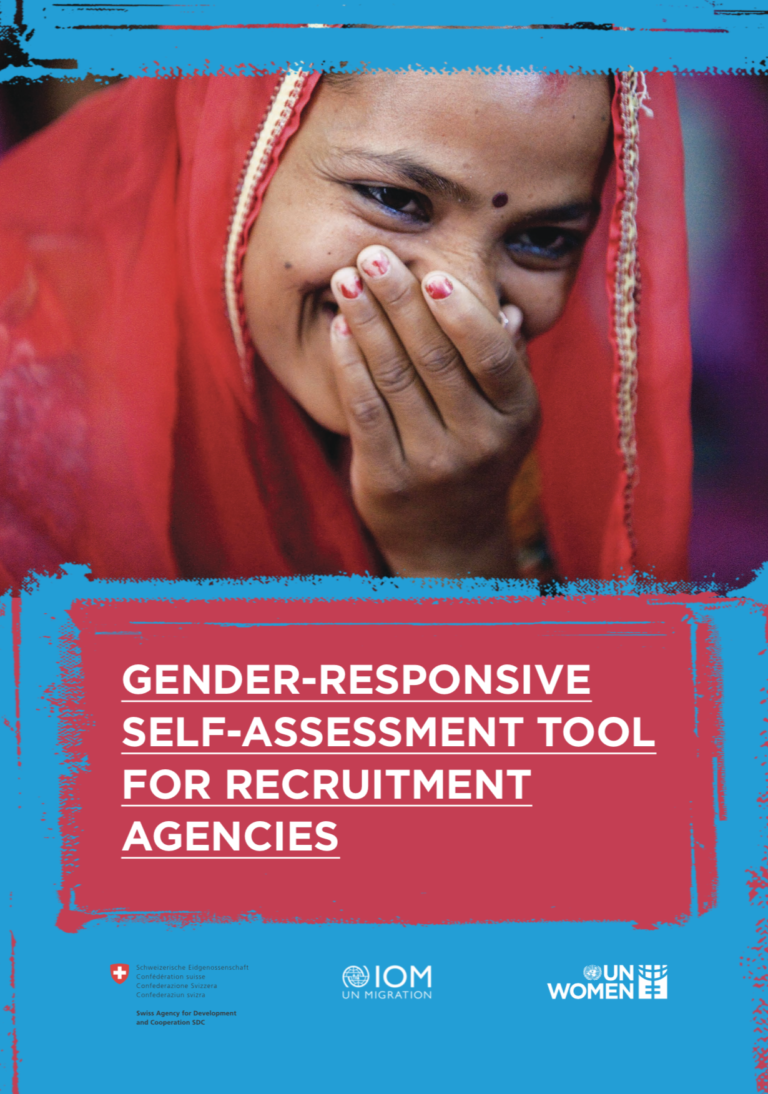This self-assessment tool was developed to ensure employers, governments and recruitment agencies have policies, codes of conduct, systems and training in place that effectively meet the needs of women migrant workers. The tool was developed by UN Women, in partnership with the International Organization for Migration (IOM), building on research into the experiences and perspectives of migrant women, and on international human rights standards and commitments.
The tool provides a practical set of principles and actions which can be implemented to promote gender equality and women’s empowerment through labour migration, with the following components:
- Guiding questions to assess the gender- responsiveness of recruitment practices;
- Suggested gender-responsive actions to improve recruitment practices;
- Supporting information on international frameworks, standards and good practices.
The tool exists in the attached PDF file below. Instructions and guidance are also within the PDF.
This self-assessment tool is one part of the “Empowering Women Migrant Workers from South Asia: Toolkit for Gender-responsive Employment and Recruitment” which supports gender-responsive governance policies and practices to protect and promote the rights of women migrant workers from South Asia.

